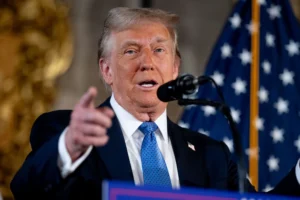US senator Mark Kelly reveals Israel used American-made guided bomb to kill Hezbollah leader

US Senator Mark Kelly, chair of the Senate Armed Services Airland Subcommittee, has made a significant disclosure regarding the weapon used by Israel to eliminate Hezbollah leader Hassan Nasrallah in Beirut.
During an interview with NBC, Kelly provided insight into the military equipment used by the Israeli Defence Force (IDF) saying, “We see more use of guided munitions, JDAMs, and we continue to provide those weapons… That 2,000-pound bomb that was used, that’s a Mark 84 series bomb, to take out Nasrallah.”
The Israeli military announced Nasrallah’s elimination in a strike on Hezbollah’s central command headquarters in Beirut’s southern suburbs. The Pentagon has not commented on the matter.
Also Read: Displacement swells amid Israeli aggression in Lebanon, hundreds killed, others injured
The Israeli military has declined to disclose details on the weapons used despite the allegation raised by the senator.
This revelation highlights the close military cooperation between the US and Israel, with American-made munitions playing a critical role in Israel’s military operations.
On Thursday, Israel announced securing an $8.7 billion aid package from the US to support its ongoing military efforts and maintain a qualitative military edge in the region.
The package includes $3.5 billion for essential wartime procurement, which has already been received and earmarked for critical military purchases. An additional $5.2 billion is designated for air defense systems, including the Iron Dome anti-missile system, David’s Sling, and an advanced laser system.
The US government has consistently supported Israel’s military through significant aid commitments, which have grown substantially over the years. In 1999, the US signed a commitment to provide Israel with at least $2.7 billion in military aid annually for ten years. This amount was increased to $3 billion in 2009 and raised to a minimum of $3.8 billion in 2019.



